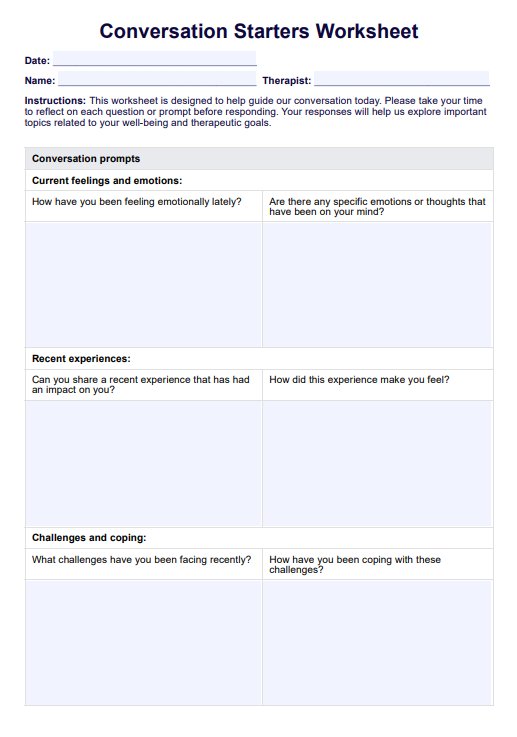To create conversation starters, consider topics of mutual interest, ask open-ended questions, and tailor them to the specific context or audience.

Conversation Starters Worksheet
Explore this effective Conversation Starters Worksheet for healthcare professionals. Enhance therapy sessions with structured prompts for meaningful client engagement.
Use Template
Conversation Starters Worksheet Template
Commonly asked questions
Yes, conversation starters are designed for specific situations, such as networking events, first dates, job interviews, and social gatherings.
Fun conversation starters for parties may include asking about favorite travel destinations and memorable experiences or sharing funny anecdotes.
EHR and practice management software
Get started for free
*No credit card required
Free
$0/usd
Unlimited clients
Telehealth
1GB of storage
Client portal text
Automated billing and online payments











